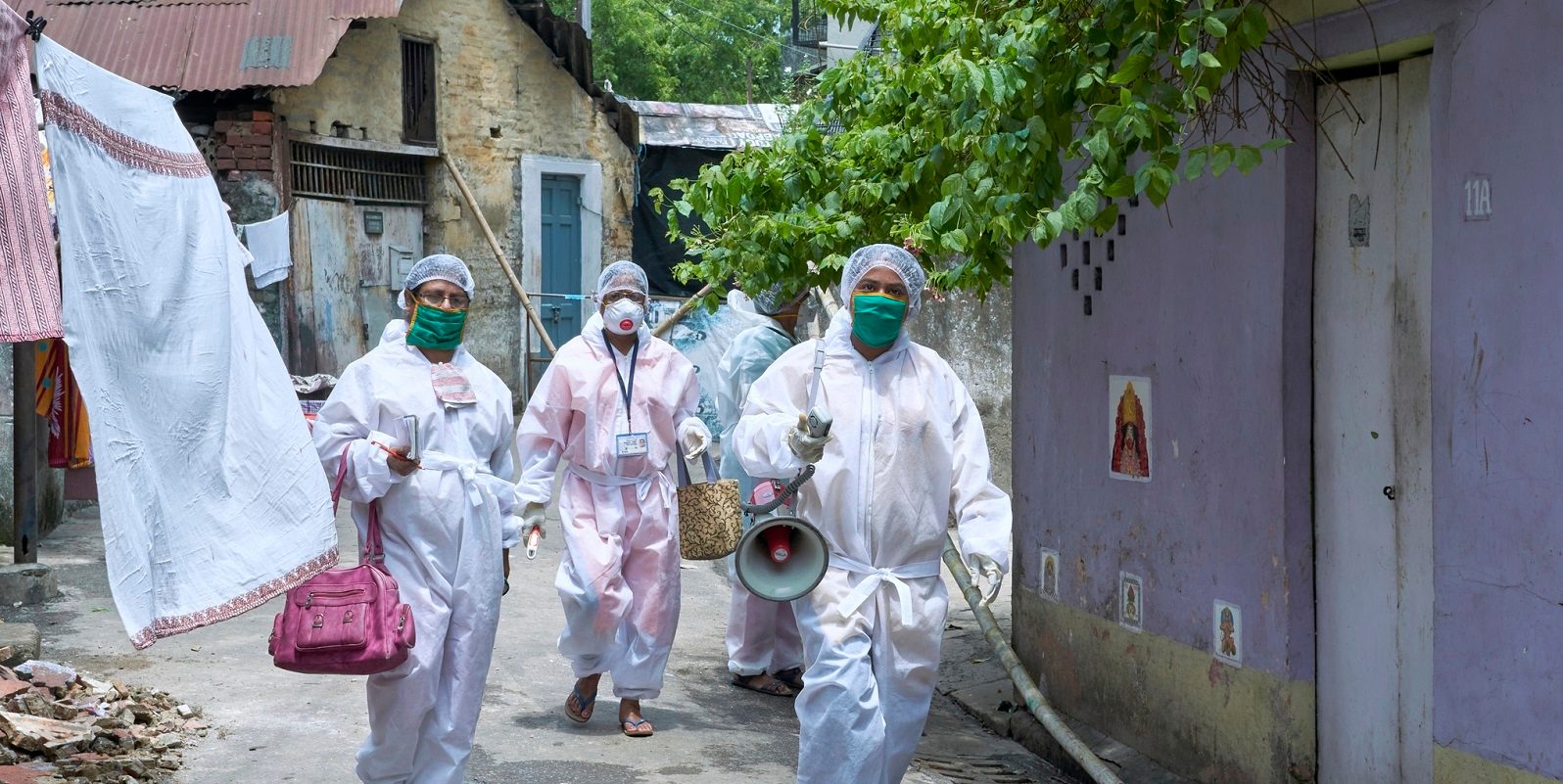
Monitoring, learning and evaluation for urban community-led responses to COVID-19 in two cities in India – Mumbai and Chennai
Background:
The sero-survey conducted by Indian Council of Medical Research (ICMR) between August 17 and September 22, 2020 found that risk of testing positive for COVID-19 was twice as high in urban slums compared to urban non-slum areas.
Outbreak of COVID-19 in densely packed slum areas can overwhelm health care resources and stretch medical facilities. Therefore, locally contextualized guidelines and interventions are required for halting the rapid spread of COVID-19.
Supporting grassroot organizations in these areas to strengthen community led responses to COVID-19 challenges had become imperative and the Bill and Melinda Gates Foundation extended its support. The effort is also to document the learnings to understand barriers and facilitators from this program to guide local and national governments and other development partners in future.
Fast Facts:
- India has 9.96 million active cases of COVID-19 and 144000 deaths from the onset of COVID-19 in India till date.
- Maharashtra has 1.89 million active COVID-19 cases and 48,434 deaths due to COVID-19, majority of the numbers coming from Mumbai.
- Tamil Nadu 802000 active cases of COVID-19 and 11,931 deaths due to COVID-19, majority of the numbers coming in from Chennai.
- Mumbai and Chennai have nearly 41% (nine million) and 19% (~one million) of the population respectively, are living in slums. These slums have seen rapid spread of COVID-19 infection in urban sum areas.
Aim:
The primary goal the project is to evaluate the community led program and document the efforts, examine the impact and understand barriers and facilitators which will influence the implementation of program.
Research Methodology:
Monitoring, Learning and Evaluation activity focus on supporting partner agencies to monitor their on-field activities and effects of COVID-19 response in the communities and project uses adapted COVID‑19 Strategic Preparedness and Response Plan (SPRP) Monitoring and Evaluation Framework by World Health Organization. Data collected by the partner agencies will be shared with TGI to assess the collective impact of the program using the SPRP framework. Additionally, to have an in-depth understanding of the implementation and record the mechanisms of impact, TGI will conduct interviews with implementers, community members, volunteers, representatives of other agencies working in the area and health staff towards the end of the study.
Current Status:
To assess the program, a monitoring, learning and evaluation (MLE) framework has been developed. The purpose of this framework is to support partner agencies to monitor their on-field activities and effects of COVID-19 response in the communities. This framework is adapted from COVID‑19 Strategic Preparedness and Response Plan (SPRP) Monitoring and Evaluation Framework by World Health Organization. This will facilitate data collection, analysis of activities, community response against planned actions or process, ensure accountability and transparency in monitoring progress and identifying gaps.
Currently, TGI is collecting quantitative data on process indicators from the partner organizations. To have an in-depth understanding of the implementation and record the mechanisms of impact, TGI will conduct interviews with implementers, community members, volunteers, representatives of other agencies working in the area and health staff towards the end of the study.
Potential Impact:
Learnings from this project will guide developing plans for of longer-term community resilience, synthesize and exchange lessons with local and national governments and other development partners.


